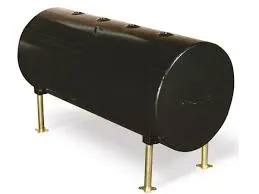Dec . 10, 2024 12:27 Back to list
Hydraulic Pump Power Units Manufacturing and Design Solutions for Optimal Performance
The Importance of Hydraulic Pump Power Units in Modern Industry
In the ever-evolving landscape of modern industry, the hydraulic pump power unit stands as a cornerstone of efficiency and power. These units serve as a vital source of hydraulic pressure, which drives machinery across various sectors, including construction, manufacturing, and agriculture. Understanding the function and significance of hydraulic pump power units helps to appreciate their role in enhancing operational capabilities and productivity.
What is a Hydraulic Pump Power Unit?
A hydraulic pump power unit is an assembly that includes a hydraulic pump, reservoir, motor, and various components used to create hydraulic energy. This energy is transmitted through hydraulic fluid, enabling the operation of different hydraulic systems. The design of these units can vary significantly based on their specific applications, but the core function remains the same to convert mechanical power into hydraulic energy.
The hydraulic pump's role is to generate flow, which moves the hydraulic fluid. The reservoir stores the fluid, while the motor provides the mechanical energy required for the pump's operation. In operational settings, these units are often customized according to the system's pressure and flow requirements, ensuring optimal performance and efficiency.
Applications of Hydraulic Pump Power Units
1. Construction Industry Hydraulic pump power units are indispensable on construction sites. They power equipment such as excavators, bulldozers, and cranes, enabling them to lift heavy loads and perform complex tasks. The ability to generate significant hydraulic pressure translates into increased lifting capabilities, allowing construction projects to progress efficiently.
2. Manufacturing In manufacturing, hydraulic systems drive machines like presses, injection molding machines, and conveyor belts. Hydraulic power units allow for precise control of machinery, ensuring high levels of accuracy in production processes. For example, hydraulic presses can exert immense force to shape materials with precision, making them essential in industries like metalworking and plastic production.
3. Agriculture The agriculture sector also relies heavily on hydraulic pump power units. They are used in tractors and various farming implements, aiding in tasks such as lifting, plowing, and harvesting. The efficiency and reliability of hydraulic systems help farmers enhance productivity, reduce labor costs, and increase yield.
hydraulic pump power unit factory

Benefits of Hydraulic Pump Power Units
Hydraulic pump power units offer several advantages that contribute to their widespread adoption
- High Power-to-Weight Ratio Hydraulic systems can transmit large amounts of power within a compact design, making them suitable for applications where space and weight are considerations.
- Precise Control Operators can finely control the speed and force exerted by hydraulic systems, leading to more accurate and consistent results in industrial processes.
- Robustness and Durability Hydraulic equipment is built to withstand high pressure and demanding conditions, making them reliable even in harsh environments.
- Versatility Hydraulic systems can be adapted to a broad range of applications, allowing industries to use a single technology across different machinery and processes.
Maintenance and Considerations
To maintain optimal performance, regular maintenance of hydraulic pump power units is crucial. This includes checking fluid levels, monitoring for leaks, and ensuring that components like filters and seals are in good condition. Preventative maintenance not only extends the lifespan of the equipment but also ensures safety and efficiency in operation.
In conclusion, hydraulic pump power units play an essential role in the functionality of many modern industries. Their ability to generate and maintain hydraulic pressure makes them indispensable for various applications, from construction to manufacturing and agriculture. As technology advances, the design and efficiency of hydraulic systems continue to improve, promising even greater capabilities for future industrial needs. Understanding and investing in these systems can lead to significant gains in productivity and operational efficiency, thereby driving the success of industries worldwide.
-
Fork Lift Power Units - Hebei Shenghan | Efficiency, Reliability
NewsJul.13,2025
-
1.5-Ton Turbocharged Cylinder-Hebei Shenghan|Hydraulic Solution,Energy Efficiency
NewsJul.13,2025
-
Auto Hoist Power Units-Hebei Shenghan|Efficiency&Industrial Lifting
NewsJul.13,2025
-
Double Acting Power Units-Hebei Shenghan|Hydraulic Solutions,Industrial Efficiency
NewsJul.13,2025
-
1.5 Ton Lifting Cylinder 70/82-40-290-535 - High-Performance Hydraulic Solution | Hebei Shenghan
NewsJul.13,2025
-
Fork Lift Power Units - Hebei Shenghan | Efficiency&Reliability
NewsJul.13,2025
